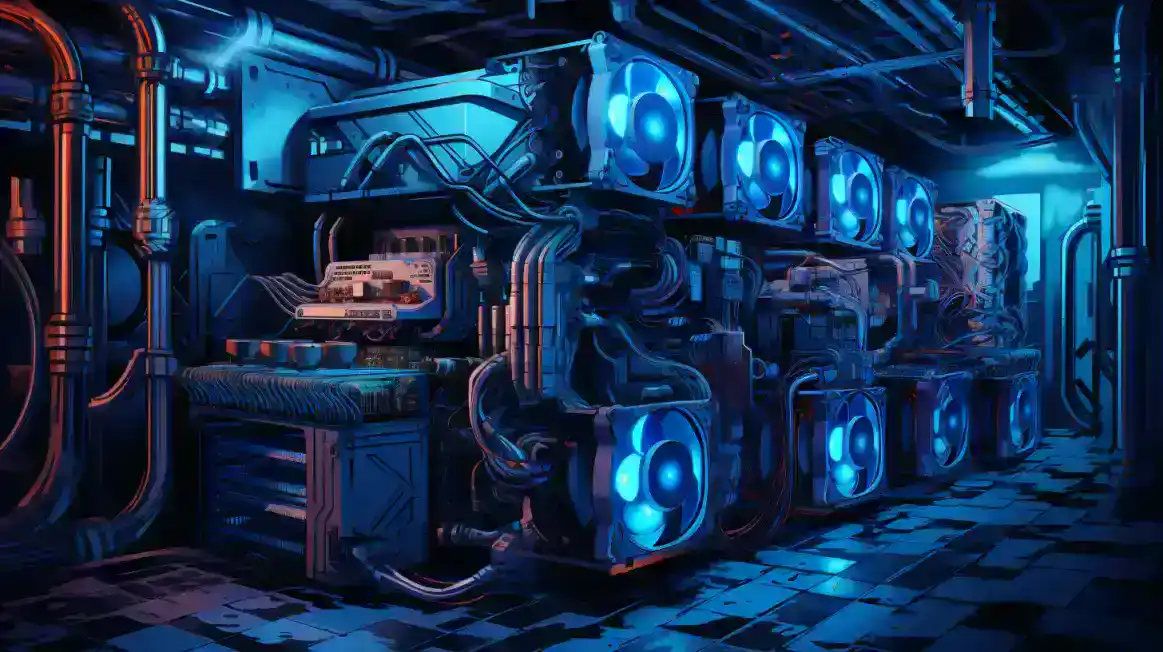Table of Contents
The increasing interest in AI energy and machine learning (ML) is leading to a surge in demand for computing resources. However, conventional Bitcoin (BTC $36,388) miners are not yet showing much interest in this field.
During an interview with Cointelegraph reporter Joe Hall at the Web Summit 2023 in Lisbon, Portugal, Alex Busarov, the founder of Heatbit, expressed his belief that mining farms, data centers, and small-scale computing power providers possess a greater understanding of Bitcoin mining compared to the emerging AI energy and ML infrastructure sector.
At the Web Summit 2023, Alex Busarov was seen wearing a Heatbit Bitcoin-mining heater on his back, as reported by Joe Hall from Cointelegraph.
Decrypt accompanied Alex Busarov, the founder of Heatbit, at Web Summit to gain insights into the company’s primary offering. Their flagship product is a Bitcoin miner designed to function as a household space heater, catering to the needs of everyday users.
As interest in the field continues to grow, the demand for computing resources in AI energy and machine learning (ML) is increasing significantly. However, traditional Bitcoin BTC miners have not yet embraced this trend.

Overlooking Computational Aspects in AI Energy
Busarov explains that when discussing AI energy, people typically focus on practical applications such as speech generation or voice replication, rather than considering the computational aspect of AI. The primary focus when discussing AI energy is usually on its practical applications, such as its ability to speak on your behalf or generate your voice. However, people tend to overlook the computational aspect of AI energy.
Heatbit, a company founded by Busarov, has introduced innovative heating hardware devices that can mine Bitcoin while also providing warmth to households. These heaters are equipped with a circuit board that can perform BTC mining, as well as serve as a resource for AI energy training and computing.
Despite the ongoing buzz surrounding artificial intelligence, Bitcoin miners of all sizes may not be quick to abandon their current operations and join the AI and machine learning bandwagon.
In recent years, the annual Web Summit in Lisbon has drawn over 70,000 attendees. This event served as a platform for Busarov to broaden Heatbit’s initial BTC-centric focus and highlight its potential as an AI training resource.
The company’s marketing approach involves highlighting the adverse impact of Bitcoin mining’s energy consumption.
Future Perceptions AI vs. Bitcoin Mining Demand
Although acknowledging the contribution of BTC heaters in revolutionizing Bitcoin mining by serving as an alternative heating source in colder regions, Busarov predicts that the increasing demand for hardware resources in the industry may lead to a similar unfavorable perception towards AI computing in the near future.
I believe that in the near future, AI will surpass Bitcoin mining due to the increasing number of headlines highlighting the excessive energy consumption of AI training. Consequently, there will be a growing demand for devices equipped with AI training chips, similar to the ones we offer.
Heatbit’s hardware currently serves the purpose of offering AI and ML resources. However, Busarov also holds the belief that the broader GPU and ASIC infrastructure ecosystem may not immediately divert its focus from Bitcoin and cryptocurrency mining activities.
Future Feasibility Home Mining and Integrated Operations
According to the Heatbit founder, there is a possibility that home mining could become a more feasible option in the future. This is due to the fact that the precision of hardware required for large-scale mining makes competition solely dependent on energy costs.
Busarov claims that integrating mining operations with supplementary functions such as heating and cooling results in the elimination of energy expenses for the mining process.
The demand for AI energy computing resources is on the rise, as reported by Cointelegraph. To meet this demand, startups such as io.net are utilizing blockchain solutions to create networks that utilize GPU computing power from various data centers, cryptocurrency miners, and decentralized storage providers to power machine learning and AI computing.